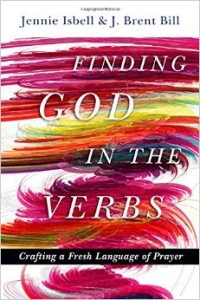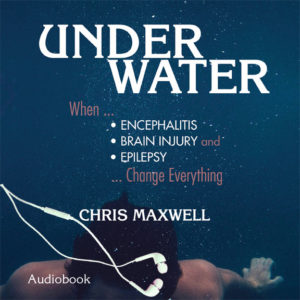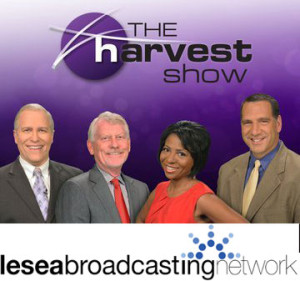Chris: I’m reading Finding God in the Verbs. I loved the title and now I’m enjoying the book.
Brent: Thanks, Chris! I’m delighted that you like it. It was Jennie’s (coauthor Jennie Isbell) and my hope to put together something that was more than a book about prayer, but rather a piece that encouraged people to experience it as they read it. I have long been intrigued by language and it’s power. It’s a power, I think, that often goes unrecognized in our society – and in Christian life. If you read the Bible, you quickly  come to understand the power that the people of faith in Scripture thought words had. Indeed, not just the people but God, as well – the power of blessing, cursing, names, and more. Despite my tendency to joke around and stretch the truth a bit while telling stories, when it comes to matters of the spirit, I try to be careful with words – in my sermons, my writing, and so forth. But, I have to have admit, I get a bit lazy when it comes to my prayers. It seems I repeated certain “go to” prayers over and over. I wanted to move past this and working with Jennie helped me do that.
come to understand the power that the people of faith in Scripture thought words had. Indeed, not just the people but God, as well – the power of blessing, cursing, names, and more. Despite my tendency to joke around and stretch the truth a bit while telling stories, when it comes to matters of the spirit, I try to be careful with words – in my sermons, my writing, and so forth. But, I have to have admit, I get a bit lazy when it comes to my prayers. It seems I repeated certain “go to” prayers over and over. I wanted to move past this and working with Jennie helped me do that.
Chris: What motivated you to write this?
Brent: Well the first thing that motivated me was attending a workshop that Jennie led called “Finding God in the Verbs.” It was amazing – it showed me again the power of words – this time in prayer. As soon as the workshop was over, I approached her about turning her idea into a book. Then we decided to collaborate and expand the ideas. It soon turned into a true collaboration as we thought about how the nouns, verbs, and other parts of language really reveal how we feel about God (active or passive, distant or close, etc.), the human condition, and Divine/human interaction. Another thing that motivated me is that I have always felt like a really inadequate pray-er. I wanted to write a book that spoke my spiritual condition and gave me tools that would lead me into deeper, more authentic praying.
Chris: What do you hope readers receive from the book?
Brent: The first thing is that perhaps they’ll recover a sense that prayer is active and life-giving – when it’s authentic and from our deepest parts, that is. The second is that they may come to realize that God really desires their prayers in the sense that praying is a way into the most important conversation of our lives – the conversation between God and us. Third, because this is most important ongoing conversation of our lives (even more than with our spouses, children, parents, others), it deserves attention in love brought to it. And it deserves our most heartfelt words and thoughts. It needs to be as transparent as it can be – to us and God. We need to stop hiding behind safe words, good words, gentle words – especially when they’re not true to our condition or life at that minute. We need to be more like Job or Jonah or Jesus and pray authentic words, words that beg, argue, love, and more.
Chris: My “pause” series of books comes from my own encounters of finding God in everyday life. Describe how you practice this in your own life.
Brent: Ah, part of being a Quaker (which both Jennie and I are) is recognizing the “holy ordinary” – the sacraments of daily life. And so this book follows my tradition of writing books that speak to the amazing way God breaks through in daily life and daily language. I am no expert in the spiritual life. So I don’t write as an expert. I write as fellow pilgrim – one who needs to encounter God daily in the stuff that I’m going through. While I love going to my Quaker meetinghouse for worship with other Friends (we Quakers are known as the Religious Society of Friends), I can’t go for week before I have another touch of God. I need them daily. So one of the things – and we talk about it in the book – I do is what Jennie calls “grace-spotting.” Looking for signs of God everywhere. For me, sometimes that includes “praying with my camera.” That’s what I call it. I pick up my Nikon and head out for a walk, looking for signs of grace – in the light that transforms an old farm dump into a thing of beauty (at least to me), for example. “Redemption everywhere I look” as my friend the singer Carrie Newcomer sings.
Chris: How can readers pick up a copy and how can they find more of your thoughts?
Brent: Finding God in the Verbs is available in all the usual places – independent bookstore, religious bookstores, Barnes & Noble, Amazon, et al. Jennie and I both have blogs. Jennie’s is at https://www.jennieisbell.com/blog/ and mine is at Holy Ordinary: The Sacraments of Everyday Life. I’m also on Twitter @brentbill, on Facebook at J. Brent Bill: Writer of Rare Books, and on the web at Brent Bill – Jennie’s also on Facebook. And you can reach either of us through Finding God in the Verbs We do lead workshops on the book and are happy to travel around the US and Canada doing so.
Chris: Any final comments?
Brent: Just that I really appreciate your taking time to talk with me about our book. I think it’s an important book and hope that readers finding helpful in revitalizing their personal prayer life. It was blessing to write – and I hope readers will find it a blessing to read.
“Authentic, meaningful, strong and courageous prayer words help us stand before God spiritually naked and soulfully transparent.” (Finding God in the Verbs: Crafting a Fresh Language of Prayer, Jennie Isbell & J. Brent Bill, InterVarsity Press, 2015)










Words affect people daily. The way we speak and the tone we use affects people. However, when there is no tone–like through a text–what affects us? The words. The verbiage. This semester especially, I have been working on my daily language. It makes sense to use the same tactics with God.
Wow. That old saying “sticks and stones may break my bones, but words will never hurt me” just came to mind. I don’t know who came up with that saying, but it seems they must have been deaf or mute because words are so powerful. It’s so interesting to think of this in God’s terms and to see Him in every word we say and every word He has already said.
Words will work wonders when wanted. The part of the interview that stuck out to me was Brent Bill being a self-described “inadequate pray-er”. I have felt that in so many different ways. Whether it is being at a loss of words over God’s grace or being speechless at how broken I have been. Words are important and choosing those words carefully is a worthy practice.
I think most people can agree with me when I say that words are more damaging than a stone. You can throw a stone at a person and leave a bruise for a couple days. no big deal. When you say something like, “You will never amount to anything and your are useless,” that will leave a person bruised internally and mentally for years at a time. Something like the constant bullying and harassment from classmates like you’re fat, you’re ugly, you’re not nearly as smart as me, that can destroy a person. That is so much more powerful than a stone. A stone is a grain of sand next to these words which are basically boulders that can break a person. It makes an impact on a person bigger than the person thinks when they say those things.
Words are the most powerful thing we can use to hurt someone. The words we say to someone will stay around a lot longer then any other kind of scar. When we go to talk to someone, we really need to think about what we say before we say it. We never know if it might hurt someone.
Thanks for this interview, Chris!
I love the part about “go-to prayers.” It is important for me to take time to think about the words I am saying to God because the words I speak to Him reflect what is in my heart. I know He want me also to have a personal relationship with Him and not just repeat things or carelessly pray.
Something I have been working through lately is the realization that I don’t really know what to pray for. Sometimes I think I know what I need to pray for, but my flesh seems to cloud that a majority of the time. I tend to be the one-sided-conversation pray-er and have a hard time being a man of few words rather than a man of many. God is showing me that spending time with him does not have to be 30 minutes of me talking. Sometimes he just wants me to BE and not DO. Its something I am working on and it is something I look forward to seeing the results of.
One of the biggest things that stood out to me about this conversations was the power of the everyday language that i speak. Often times i am careless with what i say, or i don’t realize the power of my words through the Spirit. If i speak truth, and avoid careless language, i can begin to develop the strength of my walk, and more importantly my prayer life will increase leaps and bounds.
i can completely relate to what he was saying when he said he thought he wasn’t the best pray-er. i also like what he said about how he finds God daily through different things, one being “grace-spotting”. I do the same thing a lot of times because i will go outside and just look at the normal stuff i see everyday and try to see the beauty in it. for instance the big tree right beside wellons. i pass by that thing everyday but never stop and actually take in what God has created.
I agree with Greg, the feeling of inadequacy in the prayer arena is something that usual discourages me greatly. At times, I feel like I am top of the world in my prayers, but most of the time I feel like I am having a surface-level, “Hey, whats up..you doing good? Yeah, me too…talk to you later God” kind of conversation. I like what he said about making this ongoing conversation the most important conversation you could ever have. I don’t know why we belittle this valuable truth so often. He is the God of the universe that knows us so well, and will be the most genuine friend we could have. I guess it is time to talk to Him.
His comment about “hiding behind safe words” really spoke to me. It makes me think of how we pass people everyday saying “hey” and even throw a “how are you?” in there. More times than not the response is “good” but how many people are actually doing good? To me, this is a safe word. A safe conversation. And honestly, I am so guilty of this. Learning to step past those boundaries and engage in a deeper conversation can be hard, yet I believe it’s so rewarding.
This seems like a great book that I need to get and read. This author brings out so many great points that really struck me. I like the fact that he points to the power we see in scripture and that is what we lack now in society. There are times when I lack this in my own life so this encouraged me to seek more of the power I see in scripture. I am going to practice finding God’s grace in my own life by going out and looking to what I can find God in. Once I recognize God’s presence in the small things I will then be able to live more in His presence.
Recently I have been on a journey to find out how others have grown in their prayer life and it is exciting to see God showing me many opportunities to learn. I have a desire to grow my pray life so that I might practice daily “praying without ceasing”. I have just finished “The Circle Maker” by Mark Batterson, which is all about praying bold, big, and faithful prayers. Here is another opportunity to find out more regarding prayer, and making this connection with God deeper and more intimate.
Words always stand out to me. I have found them to each have a unique power over my emotions and my thoughts. Some invoke strong emotions, while others bring the emotion to another word. Knowing that there is a book about words in the Bible makes me want to read it and prayerfully consider each word as they take on new meanings.
I love crafting words. Writing is an escape for me. It provides a chance for the hurricane that rages in my mind to be transformed into a stream of thoughts that better explain how I feel. With that being said, its hard for me to simply audibly pray for my personal needs. I attempt to craft a prayer, rather than merely having a heartfelt conversation with my Father. God knows I like the word craft, He wove that ability in me, but I believe he is more adamantly concerned to hear my raw heart cry and not some eloquent oration. I have to be careful to not cover up my true feelings with some elaborate spiel and to just allow myself to rant, rave, rage, cry,and simply speak to my Father.
“I am no expert in the spiritual life. So I don’t write as an expert. I write as fellow pilgrim – one who needs to encounter God daily in the stuff that I’m going through.” This quote speaks volumes to me because it shows humility at its finest. We all need to have the same approach, that we aren’t any better than anyone else and we are all on this journey together. Each person has something special that can help another person out.
So one of the things – and we talk about it in the book – I do is what Jennie calls “grace-spotting.” Looking for signs of God everywhere.
I’ve acutally practiced this without knowing what it is called. I try my best to see the best in people and situations. When look for moments of grace in life, I believe that we can have a deeper connection with the Father when we pray. Perhaps it’s because we are seeing and seeking the things that the Father sees.